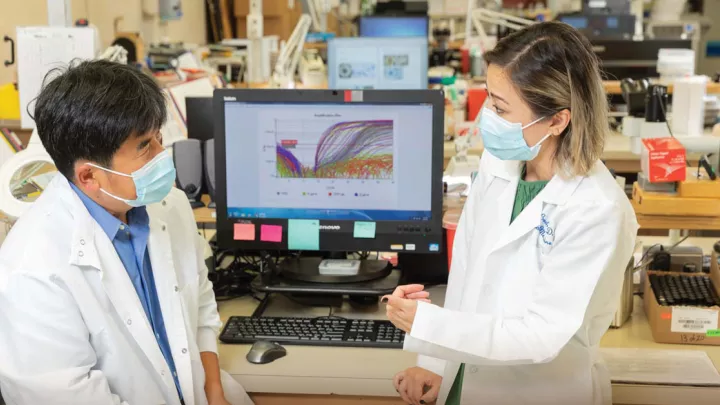Research Topics
- Gender-nonconforming youth, transgender adolescents and young adults
- Gender dysphoria
Research Overview
Transgender children and adolescents are a poorly understood and a distinctly understudied population in the United States. The limited available data suggest that transgender youth who are gender dysphoric (persistently distressed about gender incongruence) are at increased risk for negative mental and medical health outcomes including anxiety, depression, HIV acquisition, suicide, and substance use compared to their peers. Therefore, medical intervention is aimed at alleviating gender dysphoria and ameliorating potential negative outcomes.
Johanna Olson, MD, Medical Director of the Center for Transyouth Health and Development at Children’s Hospital Los Angeles, works closely with gender nonconforming children and adolescents to find ways to help them thrive.
Gender-nonconforming youth are emerging at increasingly younger ages, and those experiencing gender dysphoria are seeking medical care at the onset of puberty, or sometimes even before. Youth with gender dysphoria are at high risk for depression, anxiety, isolation, self-harm, and suicidality at the onset of a puberty that feels wrong.
Existing strategies for treating transgender youth depend on the developmental stage at which these youth present for care. For those transgender youth that present for care in the early stages of pubertal development, treatment is aimed at suppressing their endogenous puberty in order to avoid the development of undesired secondary sexual characteristics that intensify the distress associated with gender incongruence. For those youth in later stages of puberty, the goal of treatment is to use cross-sex hormones in order to induce the development of desired secondary sexual characteristics that bring the body into closer alignment with the youth's internal sense of gender.
New Research Initiatives
In 2011, the Institute of Medicine emphasized a clear need for the development of evidence-based and rigorous research aimed at understanding the health implications of hormone use in transgender individuals.
Olson has initiated a clinical research study that will evaluate the impact on mental health, psychological well-being, physiologic parameters and bone health as well as document safety of hormones administered for puberty suppression; and another to evaluate impacts on a group of youth in later stages of pubertal development to assess the impact of cross-sex hormones for gender transition.
The study networks four academic sites around the country (Children’s Hospital Los Angeles/University of Southern California, Boston Children’s Hospital, Lurie Children’s Hospital of Chicago/Northwestern University, and University of California San Francisco) with dedicated transgender youth clinics to conduct a multi-site observational study examining the physiological and psychosocial outcomes of existing medical treatment protocols for transgender youth with gender dysphoria.
This multi-center study will be the first in the U.S. to evaluate longitudinal outcomes of medical treatment for transgender youth and will provide essential evidence-based data on the physiological and psychosocial effects and safety of treatments currently used for transgender youth.

